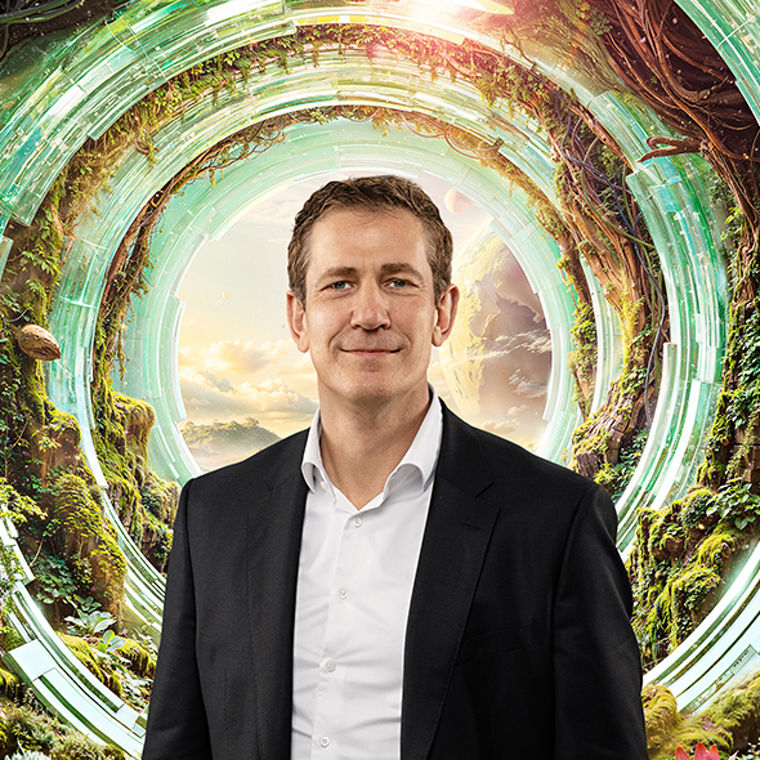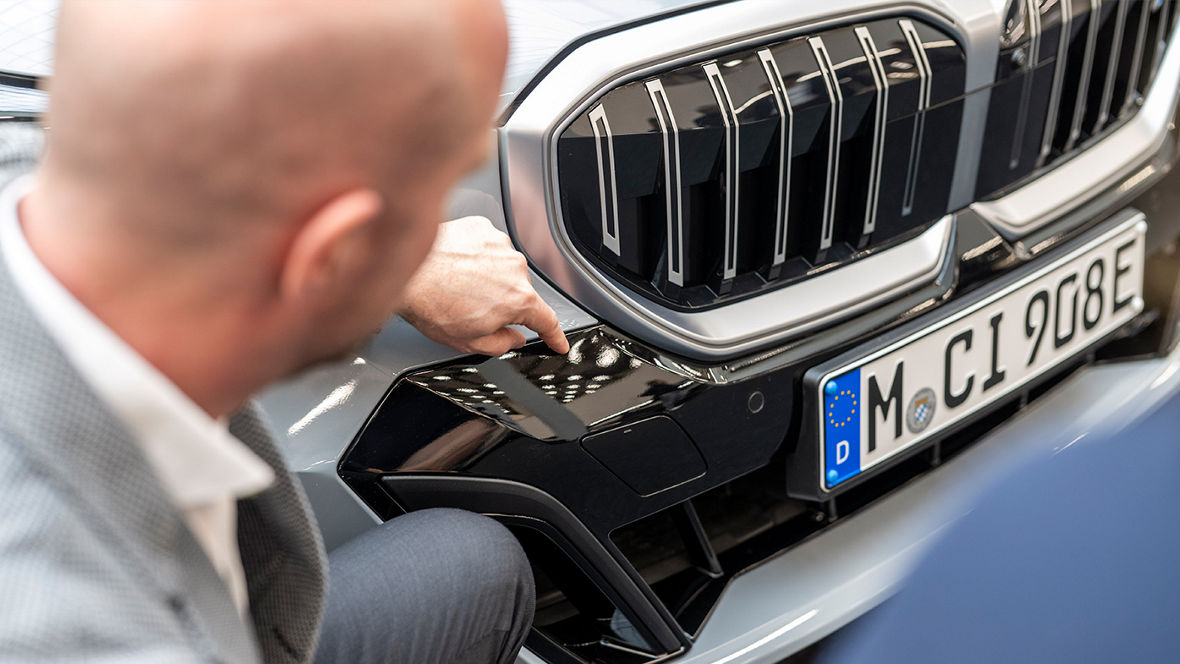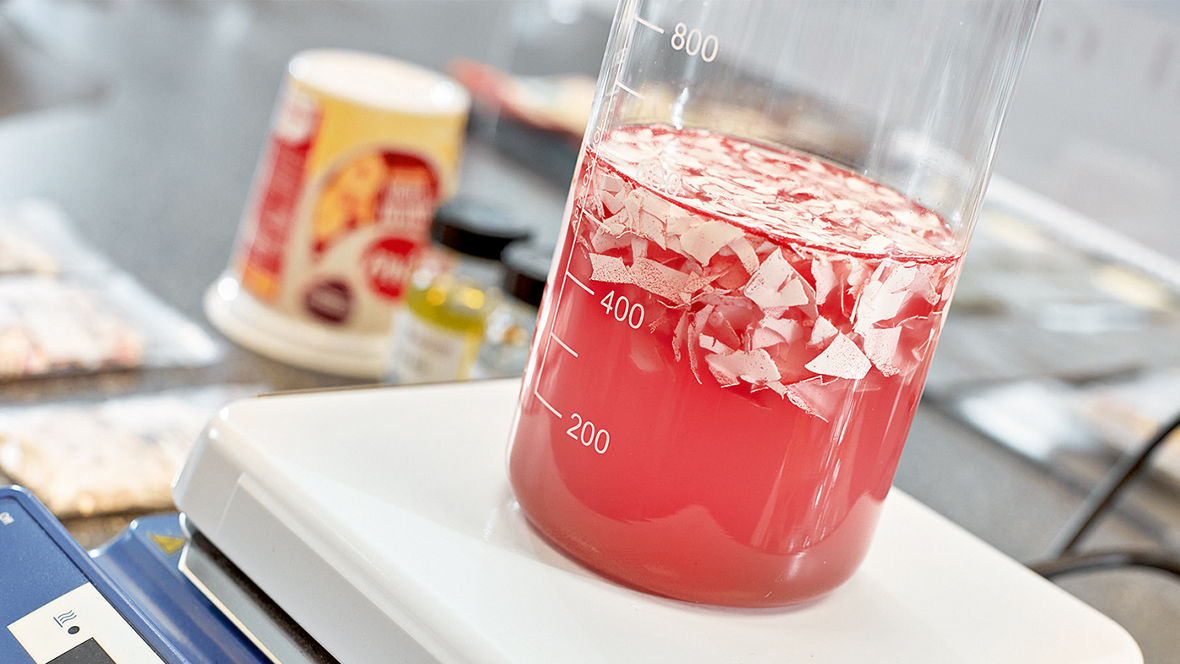The careful and efficient use of resources is an important part of Evonik’s DNA. That is why the company is working in the Circular Economy Program to create functioning cycles for all materials. The aim is to utilize resources for as long as possible and to decouple production from the use of fossil raw materials such as petroleum as far as possible. The cooperation with partners plays a crucial role here.
As part of a new program, Evonik is significantly expanding its commitment to solutions for a circular economy. The Circular Economy Program is being implemented throughout the Group with a common goal: From 2030, Evonik plans to generate at least one billion euros in additional annual sales from circular products and technologies.
The company sees this as the key to sustainable growth that takes economic, environmental, and social aspects into account. In line with this program, Evonik is also committed to paving the way for a more sustainable economic system. “A successful circular economy requires teamwork more than anything else,” says program manager Patrick Glöckner. “We are developing functioning cycles by building ecosystems and partnerships along value chains.”
SUSTAINABLE MATERIALS FOR CIRCULAR AUTOMOTIVE PRODUCTION
The collaboration in the Future Sustainable Car Materials (FSCM) project, which was initiated by car manufacturer BMW, shows how this works in practice. A total of 19 partners from industry and science are pooling their expertise to develop new processes for the use of sustainable materials for circular automotive production. Evonik provides support with specialty chemicals expertise in the areas of plastics and additives. “Our mechanical recycling experts work closely with recyclers to provide methods for cleaning plastic parts, such as separating paint at the end of the parts’ useful life,” says Glöckner. “We're also working together with compounders to develop solutions that will enable as high a share of recycled plastic as possible to be used in new automotive parts.”
Due to the high complexity of automotive engineering, those involved in the FSCM project are optimistic that the knowledge gained can also be transferred to other industrial products such as commercial vehicles as well as electrical and household appliances. This could give a decisive boost to future circular economy systems in the economy. The FSCM project is supported by the German Ministry for Economic Affairs.
NUMEROUS PRODUCTS ARE ALREADY DRIVING THE CIRCULAR ECONOMY FORWARD
Evonik is already contributing to the circular economy in other value chains as well. Examples include all Evonik products labeled “eCO.” This label indicates that products are manufactured using circular raw materials and have a low product carbon footprint.
In the production of the polyamide 12 elastomer VESTAMID® eCO E40, for example, 50 percent of the fossil raw materials used are replaced by a certified mass-balanced starting material obtained from discarded tires by chemical recycling. Evonik also exclusively uses renewable energy in production, thus reducing the carbon footprint by a total of 42 percent. “Our molding compounds have been prized by well-known sporting goods manufacturers for more than 40 years and are used in sports shoe soles, for example,” says Florian Hermes, head of Sustainable Business Solutions in Evonik’s High Performance Polymers business unit. “They serve as an example of how the circular economy can work and be economical.”
Evonik also uses additives that improve the efficiency and yield of recycling processes and the quality of recyclates. Evonik’s TEGO® Cycle product portfolio, for example, helps to save energy in the mechanical recycling of plastics, reduce odor, and strip printing inks off packaging. In addition, the company has significantly expanded its product portfolio of CHLOROCEL® brand adsorbents to remove impurities from pyrolysis oils obtained from plastic waste.
PROPRIETARY TECHNOLOGIES FOR THE CHEMICAL RECYCLING OF PET WASTE STREAMS
As part of the Circular Economy Program, Evonik intends to further expand its activities related to additives and specialties for the circular economy. At the same time, the company plans to make greater use of defossilized raw materials based on recyclates, biomass, and CO2. Evonik is also pushing forward the development of its own technologies to close cycles, for example for the chemical recycling of PET waste streams that cannot be mechanically recycled. In addition, the company is developing technologies for using carbon dioxide and biologically based raw materials as feedstock.
“We want to make the entire industry circular,” says Lauren Kjeldsen, sponsor of the Circular Economy Program and member of the extended Evonik Executive Board. “Our expertise in specialty chemicals lets us support our customers and value chain partners in the transformation to circular applications by making their production processes more efficient and improving quality in line with design for circularity.”

A successful circular economy requires teamwork more than anything else. We are developing functioning cycles by building ecosystems and partnerships along value chains
Patrick Glöckner, Head of Next Markets Program


